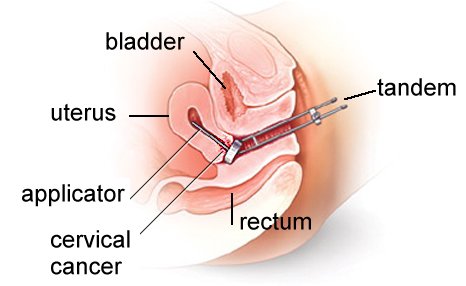Brachytherapy in India
About Brachytherapy ?
Brachytherapy (from the Greek word βραχύς brachys, meaning "short-distance"), also known as internal radiotherapy, sealed source radiotherapy, curietherapy or endocurietherapy, is a form of radiotherapy where a sealed radiation source is placed inside or next to the area requiring treatment. Brachytherapy is commonly used as an effective treatment for cervical, prostate, breast, and skin cancer and can also be used to treat tumours in many other body sites.
Brachytherapy can be used alone or in combination with other therapies such as surgery, external beam radiotherapy (EBRT) and chemotherapy.
Brachytherapy contrasts with unsealed source radiotherapy in which a therapeutic radionuclide (radioisotope) is injected into the body to chemically localize to the tissue requiring destruction.
Source placement
In the case of interstitial brachytherapy, the sources are placed directly in the target tissue of the affected site, such as the prostate or breast.
Contact brachytherapy involves placement of the radiation source in a space next to the target tissue.[1]:Ch. 1 This space may be a body cavity (intracavitary brachytherapy) such as the cervix, uterus or vagina; a body lumen (intraluminal brachytherapy) such as the trachea or oesophagus; or externally (surface brachytherapy) such as the skin.Ch. 1 A radiation source can also be placed in blood vessels (intravascular brachytherapy) for the treatment of coronary in-stent restenosis.
Brachytherapy

Screening
Devices are being tested (one involved a preliminary, small study of 98 samples of urine, all from men—24 who had cancer, and 74 with bladder-related problems but no cancer yet) in which the heating of urine samples causes chemicals in the urine to release certain gases, and are detected by the device, presumably because of irregularities in the chemicals and gases. The researchers became interested in such a method after hearing that dogs could be trained to detect cancer-related odors.
Instillations of chemotherapy, such as valrubicin (Valstar) into the bladder, can also be used to treat BCG-refractory CIS disease when cystectomy is not an option.